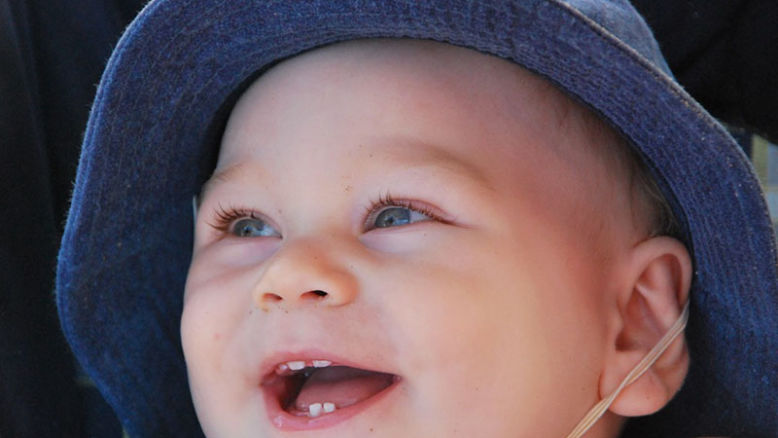Teething can be a really uncomfortable time for your baby, and make for a really difficult time for you. Most babies begin to teeth between 4-7 months, but the times will vary depending on the child, and so will their symptoms. Babies may go through a period of pain as their teeth start emerging from their gums, and as a parent, we may feel distressed as well.
No need to be stressed, when the time comes we have some solutions you can try out.
Every baby develops differently, so the symptoms may vary, but here are a few signs that may indicate your child is teething.
- Their gums have become swollen or red.
- They’ve become more fussy or irritable.
- Often gnawing or wanting to chew/bite things.
- Starting to heavily drool.
- Changes in their usual eating or sleeping patterns.
There may be other symptoms to indicate their teething process, however always check with your doctor if there are unusual signs which may indicate to something different.
As fussy as they can get, your baby will need your endless love and support even if both parties are not having a fun time. Your baby may be feeling pain for a while, which means you will be constantly checking up on them and helping ease the pain.
Here are a few tips to best soothe your baby’s ache:
- Give your baby something to rub their gums on, something cold will help ease the ache.
- Try a cool pacifier, washcloth or teething toys (make sure they’re not frozen items!) and even rubbing their gums with your clean finger will help. Make sure to clean all items after the baby uses them.
- As your baby’s teeth grow, you’ll have the new task of making sure they remain healthy. Try to establish a routine of cleaning them every day.
- Gently wiping their gums in circular motions with a clean, damp cloth wrapped around your finger will do the work. Make sure you clean all areas of their teeth, as well as gums.
With symptoms and remedies, there are also things you should definitely try to avoid:
- Avoid sugary drinks and food to protect your baby’s teeth from decay. Don’t leave your baby sleeping with a bottle in their mouth as formula can accumulate, leading to further decay.
- Avoid using teething gels or teething beads as they can severely harm your baby if swallowed or choked on.
Toddlers may fully complete the teething process by around the age of 3, usually having a full set of teeth by then. This process can be extremely uncomfortable for some babies and make it a difficult time for parents but with a lot of support, care and love the process will be a breeze. You both can get through this together!


